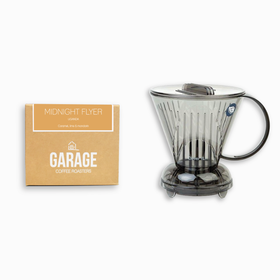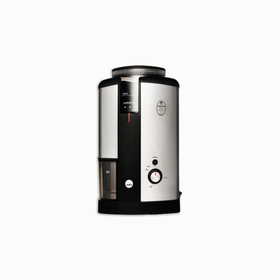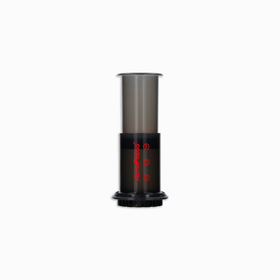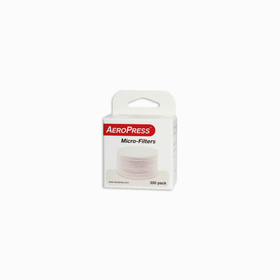
Maypole, Mexico/Colombia (Sample Bag)
Our Maypole sample bags are the perfect options for gifts or hampers.
30g = approx. 2 cups
100g = approx. 6 cups
Tasting Notes
Roast Level: Medium
Process: Fully washed/Washed & silo dried
Varietal: Caturra, Typica, Garnica, Colombia, Marsellesa
Roaster's Notes: This finely balanced blend makes for an espresso with notes of milk and dark chocolate, hazelnuts and figs with a very creamy mouthfeel.
Farm Info
Producer: Eduardo 'Teddy' Esteve/Echavarria Family
Region: Chiapas, Mexico/Antioquia, Colombia
Altitude: 900 - 1700 metres
Background information - Finca Guadalupe Zaju, Mexico:
Beautiful Finca Guadalupe Zaju occupies 310 hectares right on Chiapas, Mexico’s famed ‘Ruta de Cafe’. This ‘Route of Coffee’ rides along the Guatemalan border, north from the border town of Tapachula, through Mexico’s famed Soconusco region. The route flows past some of Mexico’s most famous farms – including the Fincas Hamburgo and Irlanda. A neighbour of these farms, Guadelupe Zaju is well on its way to helping carry on the region’s (somewhat diminished in recent years) reputation as a location for high quality coffee.
The Soconusco region is one of Mexico’s most famous coffee locales. Founded in 1890, the region was established by Porfirio Díaz (Mexico’s then President) and Otto von Bismarck, who together collaborated to send 450 German families to an underdeveloped region near Tapachula, bordering Guatemala at Mexico’s southern tip. The region had great agricultural potential, thought Díaz – but the area was remote and lacked investment. Under the careful management of the German immigrants and with the great effort of local farmers and workers, Soconusco was transformed into coffee powerhouse! Between 1895 and 1900, 11.5 million kg of coffee was harvested – some 70% of which went directly to Germany.
Guadalupe Zaju was taken over in 1945 by Hamburg-born businessman Hans Asmus Luethje and his Peruvian wife. She was actually Mexican but the fact that she was born on the neighboring farm “Peru” made her Peruvian J. Their son Juan Luethje carried on the legacy. The farm was originally known simply as Zajú – named after the river that runs through it: Guadalupe was added only when the Virgin of Guadalupe icon was introduced to the farm’s chapel. The Luethje family ran the farm for more than 50 years with dedication; however, in the latter part of that century, low coffee prices challenged the farm’s economic viability. The farm was sold when coffee prices hit rock bottom in 2003.
When Guadalupe Zaju’s current owner, Eduardo ‘Teddy’ Esteve, purchased the farm in 2004, it was a true act of faith and commitment to making the formerly great farm into a bastion of quality again. Teddy’s family had been involved in commodity trading – including coffee, tea and cocoa – for over 150 years, and he had worked on the coffee end of the business for his whole life. In his own words, he says “I grew up cleaning up the cupping room in the office and being involved in clerical matters since my early days to complement my allowance.” He directly started working for the family company in 1983. However, he had never directly been involved in farming coffee.
After purchasing Guadalupe Zaju, Teddy purchased two neighbouring farms – La Gloria and Chanjul – in 2011, all of which are run, today, under the name of Guadalupe Zaju. Currently, only 350 hectares of the farm’s total 600 hectares are under coffee. Teddy has set about expanding the area under coffee – mostly with resistant varieties that, nonetheless, offer a great cup (such as Marsellesa and various Hybrids). Maintaining forestland is a commitment, however, and it is almost certain that a good portion of the farm will remain forested.
Teddy has complemented his passion for coffee farming by surrounding himself with experts. All of this is to ensure that Guadalupe Zaju establishes a name for itself as a producer of high quality coffee.
This team of experts and the passion with which Teddy approaches his role as a coffee producer have paid off. Guadalupe Zaju’s yields are unusually high for a Mexican farm. At 20-25 quintales (approx. 60 kg sacks of pergamino) per hectare, they are around double the average for Chiapas. These yields are achieved due to a strict regimen, intelligent fertilisation schedule and regular pruning and renovation. They have also renovated many areas where the older Caturra and Catuai plants have become diseased or non-productive, replacing these plants with Marsellesa and Hibrido (developed by CIRAD & ECOM). As the farm’s Marsellesa begin full production they expect yields will increase to up to 30 quintales per hectare.
The coffee at Guadalupe Zaju is 100% shade grown (in fact, the farm is Rainforest Alliance, Utz AND Cafe Practices certified). Shade is well-managed and designed to be multi-purpose. Magnolia from Guatemala has been selected due to the fact that it is evergreen and has less leaf fall. Even more importantly, it is a sturdy tree with a relatively high canopy. The area is known for being windy (high winds in of 2008’s Tropical Storm Odile almost ripped the entire harvest away). Magnolia can withstand high winds and help protect the vulnerable coffee trees below. Shade trees are also selected for their ability to control pests. Because of coffee leaf rust and rising temperatures, the farm still has to apply some fungicide and pesticide. But they are able to limit application by widely planting the Chalún tree (Inga spp.). Not only does this tree provide shade and help fix nitrogen into the soil, it provides a feast for the “Chulunero” insect (as it is known locally), which would otherwise attack the coffee trees.
Background Information – Loma Verde, Colombia
Café de Santa Barbara is a family-owned company dedicated to the production and export of Colombian estate coffee. The family’s beginnings in the coffee business date from the early 20th century when Don Alejandro Angel (great grandfather to the current generation) became the first major exporter of Colombian coffee. Foreseeing the enormous potential for the Colombian crop, in the times when our country’s coffee did not have the reputation that it holds now, he sought to convince the European and American traders that the distinctive qualities of our Arabica coffee made it worthy of recognition and admiration by the coffee roasters of the world. He succeeded beyond his contemporaries’ imagination, opened new markets and became the largest Colombian coffee exporter of his time.
This legacy greatly inspired Pedro Echavarria (husband to one of Don Alejandro’s great grand-daughters) who ventured into growing coffee three decades ago. Mr. Echavarría understood that the most important step was choosing the region where to grow his coffee. After much deliberation he ended up deciding for Santa Barbara, a small county encroached into the Andean mountains in the state of Antioquia. Other than its picturesque charm, Santa Barbara offered a land with distinctive and crucial qualities, such as microclimates (do to the combination of altitude with warm air from the Cauca river valley), singular volcanic soils, perfect altitude, and a tradition of excellence in the production of coffee. Mr. Echavarria started then with a modest amount of land, but throughout the years he has constantly increased production capacity. By marrying these perfect natural conditions with hard work and efficiency, he quickly grew both the area under cultivation and his farms’ reputation. The Echavarria family began to consolidate the various lands he had purchased over the years during the 1980s.
Today, Santa Barbara Estate is composed of 5 sister farms (including Loma Verde) that lie across three neighbouring, geographical regions: Santa Barbara, Fredonia and Amagá. Loma Verde is the largest of all the farms in the estate. At 75.34 hectares, it accounts for nearly 17% of the Estate’s total production.
In the last five years, Pedro’s son – also Pedro – has become more deeply involved in the workings of the farm, taking the already high quality of the coffee to new heights through experimentation in processing and increased monitoring and control of every stage of production. Pedro Jr. and Santa Barbara’s Coffee Director, Leonardo Henao Triana, manage their wet mill with a blend of art, industrial rigor and scientific curiosity. They are committed to further developing the Estate’s capacity for the highest quality coffee possible and have even brought their offerings to Medellin, Colombia through their flagship coffee shop, Pergamino.





